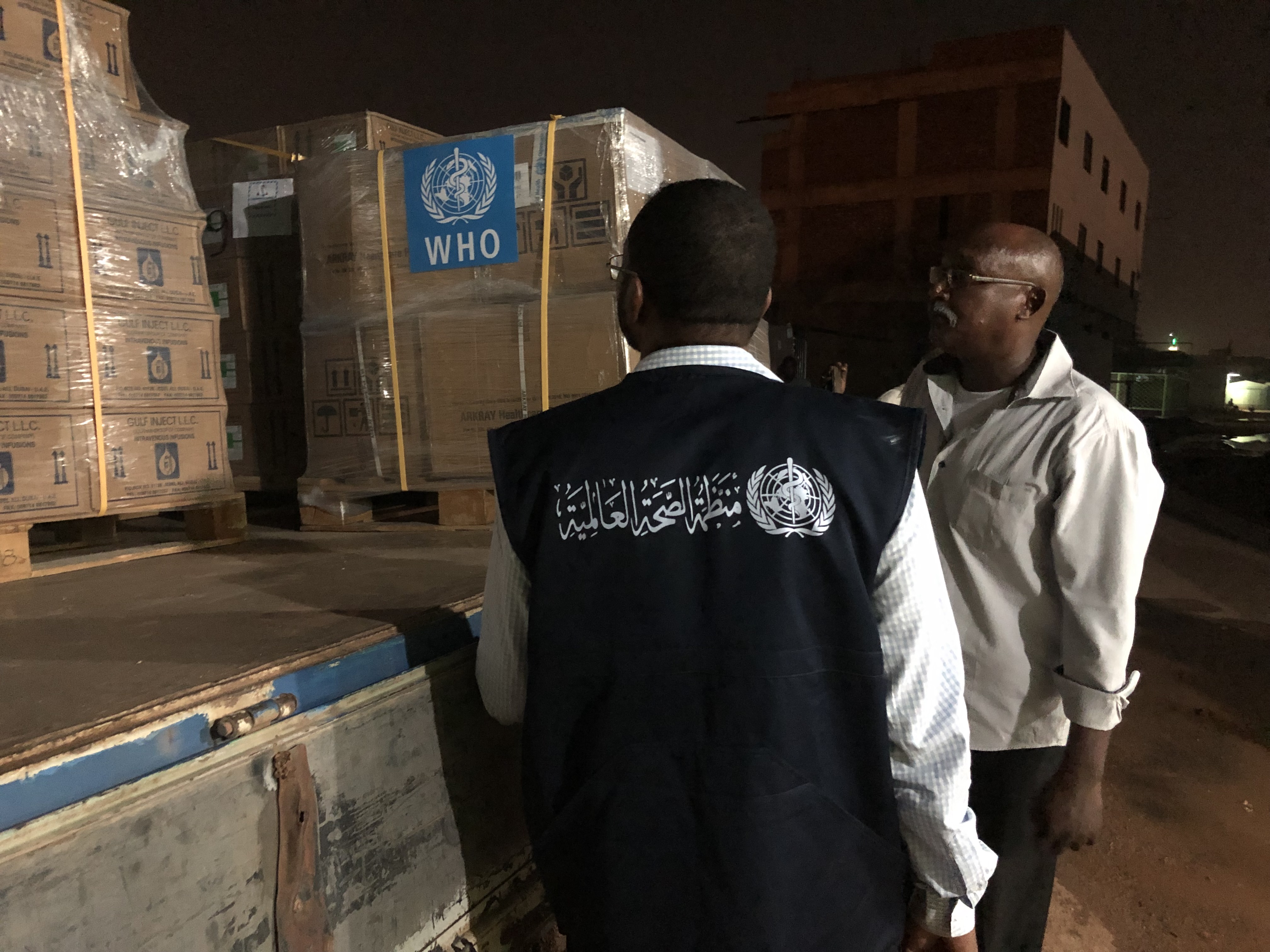
25 September, 2019 – A shipment of 36 tons of cholera treatment medicines and supplies have arrived in Khartoum and are being prepared for distribution as part of the World Health Organization’s response activities supporting the Federal Ministry of Health in Sudan to contain and halt a cholera outbreak.
The shipment includes 5000 rapid diagnostic tests (RDTs) for immediate detection and screening of cholera patients at health facilities and high-risk areas. RDTs are an essential part of early detection and response activities as their use ensures timely management and reporting of cholera cases.
The shipment also contains medicines that can treat 2500 severely dehydrated patients, and which will be distributed to cholera treatment centres in Blue Nile and Sinnar states, where cases have been confirmed, as well as in the neighbouring at-risk states of White Nile, Kassala, Gedaref and Khartoum.
“Even with the rapid depletion of our resources, we are accelerating our coordinated response, including delivering more medicines and supplies,” said Dr Naeema Al Gasseer, WHO Representative in Sudan. “We are working around the clock with the Federal Ministry of Health, state authorities and partners to control the outbreak and prevent more deaths.”
As of 24 September, a total of 184 cholera cases have been reported, including 128 cases from Blue Nile State and 56 cases in Sinnar state. Eight cholera-related deaths have been recorded by the Federal Ministry of Health, including 6 in Blue Nile State and 2 in Sinnar State.
Open defecation, lack of clean water outside the capital city and a dilapidated health sector are serious threats in a country of about 40 million people. Cholera, a bacterial disease usually contracted from contaminated water supplies, can be fatal if not treated early.
As part of an overall integrated cholera response plan, WHO is working with the Ministry, state-level health ministries, United Nations agencies and nongovernmental organizations on surveillance of cases to monitor and control spread of the disease; maintain clean water, sanitation and nutrition; and raise awareness among at-risk communities.
To date, WHO has deployed international experts to support the ongoing response activities and has trained and deployed 9 rapid response teams, each consisting of at least 3 members, for assessment and surveillance of high-risk areas. 18 health volunteers have also been trained and deployed to conduct water quality assessments in the 2 affected States. WHO is also actively disseminating awareness messages on health and sanitation through focus group discussions with community leaders, especially women, and training workshops are ongoing for volunteers on conducting house-to-house and community visits to deliver relevant health messages.





